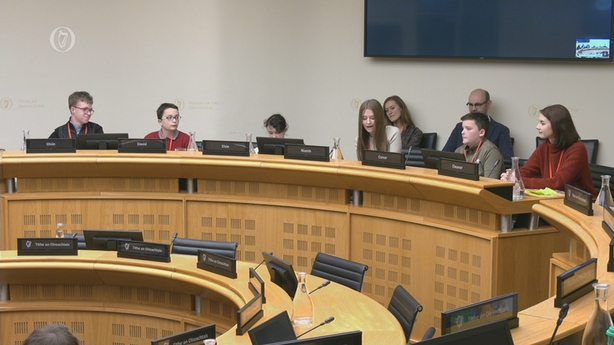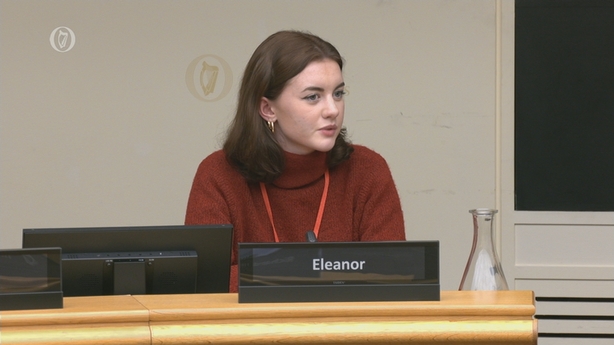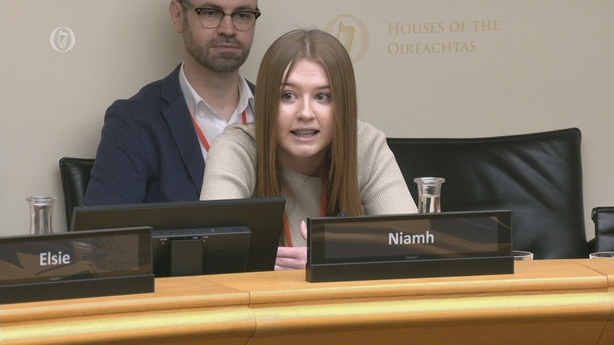A 13-year-old boy from Co Mayo, speaking to politicians at an Oireachtas committee, has criticised the lack of rail services in Ireland.
TDs and senators heard demands from children for action on climate change and biodiversity "now", and not "planning for the next ten years".
The Joint Committee on Environment and Climate Action was hearing from representatives from the Children and Young People's Assembly on Biodiversity Loss, which was held just over a year ago.
The assembly brought together 35 randomly selected children aged from seven to 17 and delivered 58 recommendations to protect and restore biodiversity in Ireland.
David told the committee that his mother submitted his application "on the last day", leaving them "quite shocked but also excited" when he was offered a place on the assembly.
"We really need to have more trains up and running. I know there are plans for it, but it can't be planning for the next ten years," he told Oireachtas members. "We need it now."
"We had a train line running from, I think, Galway to Limerick nearly directly, but now if I was to go down to Limerick, because I family down there, I'd have to catch a train to Athlone first," David added.
"That is long, slow, painful and indirect."

Elsie, who is nine and from Co Tipperary, also urged that more public transport be introduced as an immediate step to increase energy-saving.
There were also cautions about "doom" in media coverage of climate change in general and biodiversity in particular.
Eleanor, aged 16 and from Co Kildare, said that "we hear about all the bad things that happen", but she noted that the proportion of Ireland under forest has increased from 1% to 11% since the start of the last century.
"That's a huge improvement," she said. "And I know it's a small victory, but we need to focus on them as well."
"Because that gives us hope for the future that if we do take small steps, if we try and take personal responsibility - if we do the right things ourselves - even if Ireland is only a small country, we will make a difference."

The "mainstream media" came in for more criticism over its focus "on climate change and global warming, and not so much about biodiversity".
"It's something that will happen in your back garden that you can see disappearing," David said. "Like, say, less bees, or if you're living by the coast maybe less of a certain type of fish."
Oisín, who is 14 and from Co Galway, emphasised that it is "crucial" to include children in decision-making on biodiversity.
"Because it'll be us who will feel the worst of biodiversity loss. And it'll be us, our children and our grandchildren who will be the most severely impacted."
Conor, aged 12 from Co Dublin, agreed.
"It's our future," and it cannot "be chosen by people who are not going to live through it", he said.
"Children are the future," he told the committee, a sentiment that several members also expressed.
Niamh, who is 16 and from Co Waterford, led the delegation through its contributions.

She agreed that "scepticism" from adults needs to be tackled and urged that "more assemblies" be held to help in this effort.
There "is a little bit of a stigma with some people attached to listening to the voice of young people".
"Education is key," she said, noting the 58 recommendations that she and her colleagues had delivered and that were "going to be acted on. And that is a first".
Minister for Heritage Malcolm Noonan committed to including some of the recommendations in the next action plan in biodiversity, which has been in development since 2021 and will cover the period 2023-27.

